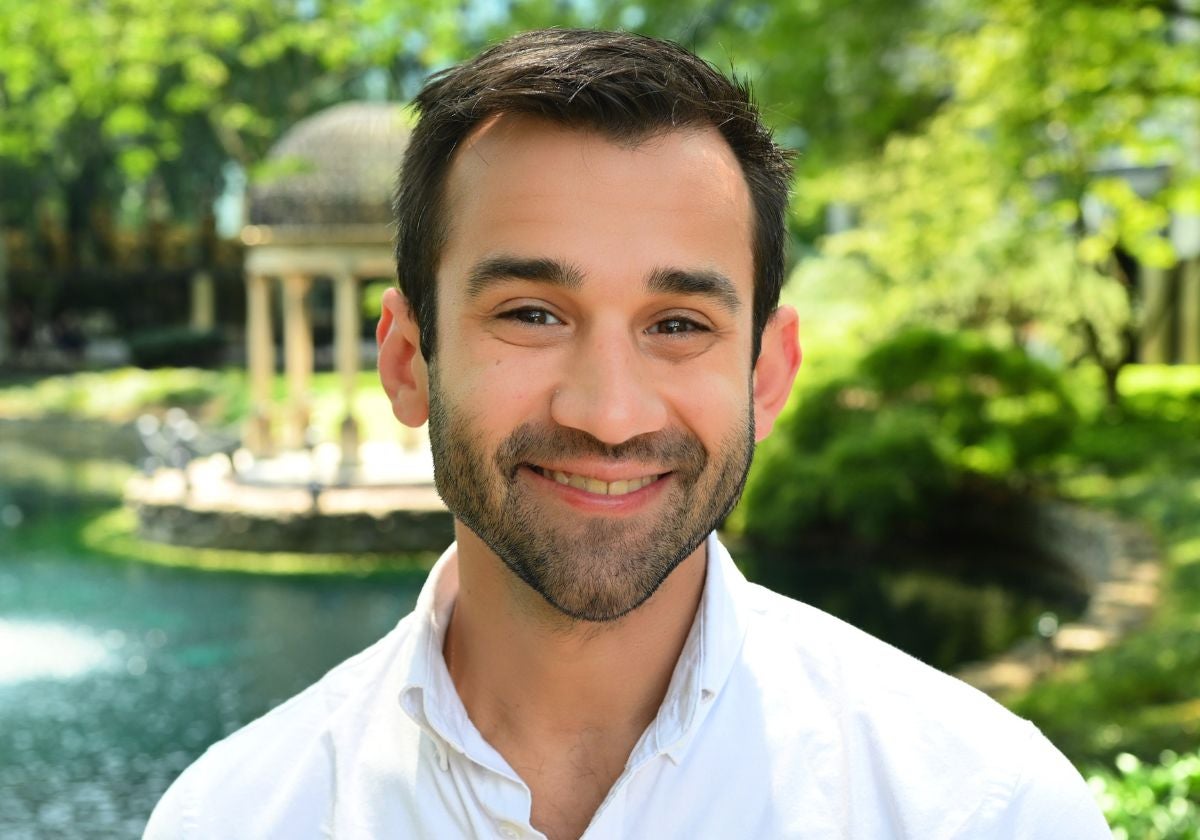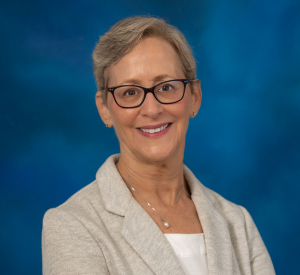The University of Pittsburgh Doctor of Audiology program welcomes its new director, Aaron Roman. Roman, who grew up in Allentown, PA, is no stranger to Pitt. He started his undergraduate degree at Pitt in 2009 with an initial intent to study neuroscience. However, after attending a School of Health and Rehabilitation Sciences (SHRS) Open House and meeting Elaine Mormer, vice chair of clinical education in the Department of Communication Science and Disorders (CSD), he found the field of audiology which allowed him to combine his interests of neuroscience and music. Roman went on to complete his bachelor’s degree in communication science, as well as his master’s degree and doctorate through the Doctor of Audiology program.
After completing graduate school in 2017, Roman served as an assistant professor at West Chester University of Pennsylvania, where he eventually served as the director of clinical services and later moved to Salus at Drexel University, where he instructed audiology students, supervised student clinicians and provided patient care. Roman has dedicated himself to impactful research in audiology across the lifespan and was the 2024 recipient of the Early Career Audiologist award by the American Academy of Audiology for his research and service-based efforts.
Now, after three degrees under his belt, he is returning to SHRS with a new mission: leading the Doctor of Audiology program he once attended.
What made you want to come back to Pitt and take on the role of program director?
When I was a student in the program, I was president of the Student Academy of Audiology and Barb Vento, a faculty member at the time, asked me what I saw myself pursuing after graduation. I said, “I really want your job.” So, I’ve always wanted to come back to Pitt. I love Pitt.
When I talked to CSD Department Chair Catherine Palmer about this opportunity, I knew it was something that I could never say no to. I’ve always admired Pitt’s program. In fact, the country really admires Pitt’s program, as it is ranked #5 in the country by the U.S. News & World Report. When the opportunity arose to showcase how I envisioned the program growing, I couldn’t step away from it.
What goals do you have for the program?
The field of audiology is still relatively new and because of that it’s really malleable. I want to make sure that the audiologists that we produce are just as malleable as the field itself. I want to make sure that we have students that are really competent and interested in technology and that we’re thinking about what health care looks like in the future.
One thing that you see is that on average, the U.S. population is getting older, but our field is staying relatively the same size year to year. We have lots of people who need help, but we don’t have audiologists to help them. I want to grow our program to make sure that we can reach those people and increase accessibility.
In my externship year, I worked at Penn State Medical Center in Hershey, PA, and people would drive three or four hours to get to the medical center and that’s not acceptable for an appointment that maybe lasts 20 minutes. I’m hoping to grow us in that direction to meet people where they are and provide really strong, quality care no matter where they are coming from.
What strengths do you bring to the program?
One of my greatest strengths is that I still see patients clinically. Be it meeting with students or lecturing in a classroom, I know what it’s like providing information to a patient and I know how to bridge those theoretical concepts to patient care.
I think it’s important, especially with clinical programs, that we have people in clinics helping with the administration of the program. Most of the faculty in our department, including our department chair, are active clinicians who still see patients.
What advantages does the Doctor of Audiology program provide its students?

Between our diverse clinical experiences, our research capabilities and our faculty, the list of benefits is constantly growing. That said, graduate school is absolutely a psychological and financial commitment. One of the benefits of our program is that we acknowledge this and work with you to allow for options that best suit your needs to be successful. We tend to schedule our classes in the evenings, so that if you have to work to help pay for graduate school, you have that option. Additionally, we offer a wide variety of scholarship and fellowship options available for students.
How is Pitt diversifying the program requirements?
The communication science undergraduate degree is no longer required for the Doctor of Audiology program. We are one of the few programs that have let go of that requirement. I think that’s important because it means that we want to hear different ways of approaching clinical problems. What this does is it allows people to come in with different backgrounds and still have a seat at the table and frame how they would approach the clinical problems that we see every day and serve more people in an effective way.
If we say you must have the singular degree to enter this program, I view it that everyone thinks the same way because everyone learned undergraduate the same way. If you’re coming in with an undergraduate degree in electrical engineering, you’re going to have a lot of input on how hearing aids are going to work. If you’re coming in from a degree in psychology or music, you’re going to have a really different technique for how to approach the problems that people present with—and we want all those approaches to be considered.
The program is frequently ranked highly nationally. What do you think gives it such a high reputation?
Pitt is a personality in itself. When you go to a conference and you say you’re from Pitt, others know it as a reputation for excellence.
One of the primary reasons for this is that we push for not only producing quality research but the ability to critique the quality of research. We are very good at making sure that the clinicians know how to practice to the top of their ability using evidence-based practice.
On a clinical side, one thing that makes us very unique is that we do not have an in-house clinic, meaning that when you start clinic in your first semester, you are starting in the community. You are seeing patients along with other audiologists right there in the field. I think that’s what really makes it effective to learn and it’s such a unique position that Pitt provides.
Additionally, we have state-of-the-art research facilities and lab spaces. We have one of only a handful of anechoic chambers in the country, which will also be available in our new building. Our research labs are also very unique because they are collaborative, shared spaces, so that you get to learn from a variety of different researchers.
What research are you currently working on?
My current research is second language learning in adults and how second language learners process auditory information. I’m looking through that in a variety of different ways, including the usage of AI and through cognition to see how that affects our thought processes and the speed at which we process auditory information.
With this research, students can absolutely join me, that is something I would love. We also have some of the most world-renowned researchers in auditory information at Pitt. Whatever question you have, there’s probably a researcher that we can connect you with.
What else would you like students to know about you?
- I have played several instruments and have a love for music. I played piano and organ professionally and have played the xylophone, the trombone, the euphonium and the mellophone for various types of bands. I played the mellophone in the Pitt band and the euphonium in both the Pitt band and the Pitt concert band.
- I love to cook and bake. I am a much better baker than I am a chef, but both are fun.
- I love to read, and I read everything from high fantasy to long textbook-like histories. I learned in grad school that one way of preserving my mental health is to read something that has nothing to do with what I do for work.
- I am currently obsessive about my Duolingo language streak – 1402 days and counting!


